Trusted Document & Handwriting Experts.
Forensic Document Examiners
912-622-2777
Documents we examine:
- Wills & Trusts
- Forged Signatures
- Power of Attorney
- Handwriting Analysis
- Real Estate Documents
- Bank Checks
- Bank Notes
- Deeds
- Contracts
- Any Disputed Document
Our Mission
At DocuDNA, our mission is to provide unparalleled forensic document examinations characterized by scientific results, meticulous attention to detail, innovative techniques, and our loyal commitment to our clients and uncovering the truth.
Our Technology & Scientific Methods Are Changing the Forensics Industry
Disputed documents need educated answers. Not just hunches or opinions, but expert-led analysis and scientific methodologies. Using proprietary tools we developed, we can scientifically measure and compare the properties of any paper to identify the source and determine the statistical likelihood of fraud. Our detection technology and services are one-of-a-kind, leveraging extensive paper and printing expertise other document examiners don’t have.
Our Services
01
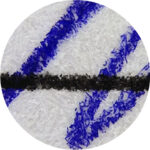
Ink and Toner Identification
We utilize several methods to identify different inks and toners used to create documents. As printing technologies advance so does the capability of fraudsters.
We have extensive knowledge of a multitude of printing techniques and methods. We are able to utilize various techniques to identify the inks and toners within documents, using microscopic imaging and the use of various light sources to differentiate inks from one another.
As a forensic examiner we make sure that every minute detail is considered when running a forensic document exam.
02
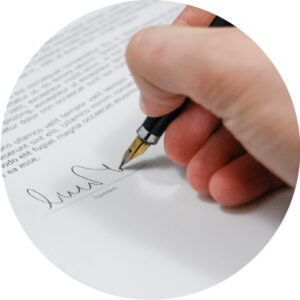
Handwriting Analysis
We offer full services for expert handwriting analysis, including forged or questioned signatures. As a forensic handwriting analysis experts, we offer you technically based reports on authenticity of the questioned handwriting analysis.
In addition to traditional handwriting analysis techniques, we also offer scientific software analysis which provides the statistical probability of two signatures being the same or not.
03
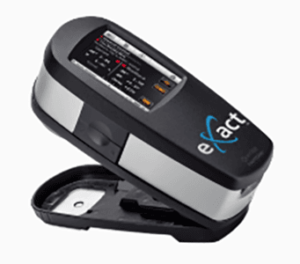
Paper Identification and Analysis
We are able to determine if your paper contains recycled fibers, cotton fibers, deinked fibers, among others.
In some cases we utilize our ScanRite Paper ID Technology to determine the source and year the paper was manufactured. We are able to compare the optical spectral properties of your paper to our database of known manufacturers and manufactured dates. The statistical analysis provides scientific data that is 99.7% accurate and repeatable.
Every paper analysis is conducted with utmost care and the keen eye of a paper scientist.
04
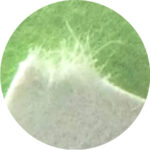
Identifying Paper Converting Anomalies
When paper is manufactured and converted into sheets server anomalies can be introduced into the paper. This photo is called a "dog ear". It is caused by the tension of the paper converting equipment not being adjusted properly when the paper is converted into sheets from large rolls.
This understanding of the paper converting process gives us a unique ability to detect fraud, like substituted pages in a questioned document. An example is that in a typical ream of paper every sixth sheet of paper comes from the same parent roll. This allows us to compare and match the pages within a document.
05

Copy and Paste of Signatures
We understand optical character recognition software and the file compression process that occurs when a PDF or other electronic document is created. We have specialized training to be able of identify when signatures have been copied and pasted into electronic documents or altered. Altered electronic documents is quickly becoming one of the most challenging areas of forensic document analysis. You need need experienced experts with specialized training and knowledge.
Our Scientific Methods
Disputed documents need educated answers. Not just hunches or opinions, but expert-led analysis. Using our expertise and the proprietary tools we developed, we can scientifically measure and compare the properties of any paper to identify the source and determine the statistical likelihood of fraud. We are court certified forensic document examiners. We provide scientific analysis and science-based reports and testimony.Click on the arrows to see what makes us a leading international forensics firm.
Handwriting Analysis
We offer full services for expert handwriting analysis, including forged or questioned signatures. As a forensic handwriting analysis experts, we offer you technically based reports on authenticity of the questioned handwriting analysis. In addition to traditional handwriting analysis techniques, we also offer scientific software analysis which provides the statistical probability of two signatures being the same or not.
Paper & Printing Forensic Analysis
Our Paper Forensics division provides industry-leading document examination services from court-qualified expert witnesses. We work closely with individuals, attorneys, and law enforcement agencies to identify ink and toner anomalies, paper sources, copy and paste signatures or text, and perform handwriting analysis on any disputed document. You'll receive a concise report of our scientific methods and findings.
We are paper scientists offering patent-pending technologies to analyze the paper from your document, uncovering anomalies and forensic evidence other document examiners are unaware of. We bring a scientific understanding to document forensics others simply can’t.
ScanRite Paper ID Technology
Patent pending methodology to verify the source of every page within a questioned document. Results are 99.7% accurate and repeatable. Our portable color spectrometer scans and measures the spectral optical properties of every sheet according to international standards. Then, we statistically analyze and compare the data using unique software to determine is all pages came from the same source or ream of paper. We can easily identify if any pages within a document were substituted.
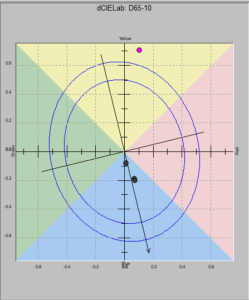

Color Spectrophotometry
Our patent pending methodology of identifying paper from different sources is a specialized service that only DocuDNA offers. ScanRitePaper ID Technology utilizes a portable color spectrophotometer to measures the color reflectance spectral data of the paper.
Since the pulping and water chemistry of each specific paper mill, along with the specific color dyes and optical brighteners added to the paper during manufacturing, are the factors that determine the color spectral data of each sheet of paper. Utilizing my patent pending methodology, we can measure the DE*, referred to as DE or (delta E), a measurement of the total difference in color between a comparable reference standard and the questioned paper. The examination protocol involves establishing a statistically significant normal population using the standard reference paper source. If the resulting DE falls within the specified DE tolerance, it is statistically the same paper, containing the same chemistry and part of the normal distribution.
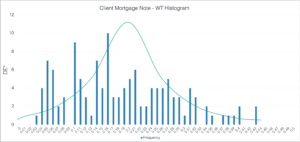
Why hire a paper expert?
Fraud involving legal documents cost Americans billions of dollars every year in lost business property and litigation costs. Your important documents are one of the most vulnerable assets you possess. For Instance, nobody ever thinks that a family member would every take your Will or Trust and change it, but it happens all the time.
Legal document fraud emotionally affects those victimized by it and each year in the United States those victims incur millions of dollars in legal fees and court costs in attempting to obtain redress.
Much of the fraudulent activity conducted on documents involves altered text and cut & paste signatures. It is important to hire a forensic document examiner who understands current technologies that are being used to alter documents. I know and understands these software programs and how to identify these alterations. Conducting forensic handwriting analysis, document dating and forensic paper analysis along with thorough understanding of various forgery techniques, then being able to explain them in scientific terms, is what makes a paper expert necessary.
Our firm has expertise in Paper Science & Engineering, Paper Manufacturing and have spent nearly 30 years working and consulting in the paper industry. We have the expertise in understanding how paper is made and what unique properties that can be identified in altered documents. There is an untold story of evidence ready to be uncovered within the paper of altered documents.
In addition, we have experience in Art and Color and its relationship to the optical properties of paper. Our development of ScanRite Paper ID Technology allows us to determine if any single page within a questioned document comes from a different manufactured source, allowing us to determine if it is a substituted sheet. We provide scientific, statistical analysis and reporting to provide conclusive evidence, not just an opinion.
Altered PDFs
One of the most difficult forensics analysis is identifying an altered PDF document. Many document examiners misdiagnose "cut & paste" text and signatures because they don't understand the lossy compression that happens when a document is converted to a PDF.
We understand this technology and can properly identify an altered PDF.
The importance of proper examination equipment
The importance of having the proper equipment for a forensic document examination cannot be overstated. Many examinations take place within a courthouse or law office, you must be prepared to do everything you need to do to properly examine a document.
At DocuDNA we have a fully equipped, portable lab with up-to-date equipment to handle most needs for any examination. We use the latest software and technology in our examinations. We continually upgrade our analytic equipment and are developing new methodologies for forensic examinations and document security.
The use of scientific methods
As technology advances, so do the methods that fraudsters use to alter documents. With a degree in Paper Science & Engineering Doug has the expertise to apply scientific methodologies to examine and report his forensic document analysis.
Doug also has an understanding of how printers work and can explain why printers often exhibit unique properties to the text they print. An example would be why a laser printer leaves toner specs around some of the letters. These are clues to identify if all pages within a document were printed on the same printer or not. Most printers have some unique properties that can be identified through examination, as long as you understand what to look for.
The utilization of scientific analysis and reporting provides objective evidence versus subjective. Science and data provide the hard facts for juries and judges to come to the proper judgements in cases.
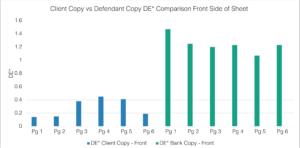
The cost of document fraud
- Document fraud now costs Americans over 600 billion dollars annually.
- In 2023 check fraud cost consumers $24 billion.
- The most prevalent form of fraudulent activity experienced by businesses and organizations is the use of modified physical documents.
Deciding to have a disputed document is not an easy decision. You may have many questions.
- Who do I retain?
- What expertise do they need?
- How much is it going to cost?
Here are some guidelines to help you. Click on the arrows to learn more.
Preparing for your document examination
What you need to provide your document examiner:
- Document type; Will, mortgage, agreement, etc.
- What is the alleged date of the document?
- Is it an original with wet ink signatures or a copy?
- Is it a PDF or photocopy?
- Do you have the document in possession?
Questioned Signatures
- Do you think the signatures are forged or altered?
- You should have as many known signatures of an individual as possible for comparison. We recommend 20-30, but at least 15.
- Get known signature examples from other documents, checks, or known writings.
- Get signature examples from around the same time period as the questioned document, also prior to and after the date of the questioned document.
- Documents with wet ink signatures are best.
Paper Examination
- We can date the paper of documents by comparing them to the paper from other documents with a known date, or by matching them to examples in our database.
- Original documents are necessary to date or compare the document to others from the same time period in order to determine if the document is authentic.
- We can match photocopies to other know sources of paper.
- We can match the paper from a questioned mortgage note to copies of your mortgage documents, they all came from the same paper source and should match.
Do I need original documents?
Original documents are always preferred. But original documents are not always available. Always try to provide the best quality copy available. Try to scan documents with a high quality, or high definition photo scanner and save the files as a .tiff file format, or at least a .png file. Photo images (jpg or PDF) are not good for forensic analysis because they utilize jpg compression to reduce the file size. This makes it easy to send images, but they lose the quality necessary for good forensic analysis.
How many sample signatures do I need?
A Forensic Document Examiner will usually ask for 20-30 known signatures or writing examples from the person whose signature or writing is in question. This is so we can determine the normal variations in a person’s writing. Since nobody signs their signature exactly the same way twice, we have to establish how much variation in style and letter formation is normal.
Do I have to send my documents to DocuDNA?
This depends on the circumstances around you case. If the opposing side or Court holds the documents, we may need to come to them. Paper Forensics has a portable laboratory or equipment that we transport to wherever the documents are.
How much will it cost to contest my parents will?
The cost of contesting a will depends on the complexity of the estate, the state where the fraud occurs, the legal fees involved, but generally, contesting a fraudulent will can cost individuals thousands of dollars in attorney fees, with estimates ranging from $5,000 to $10,000 or more in complex cases.
Key points about the cost of will and trust fraud:
Legal Fees:
This is the primary expense when contesting a fraudulent will and the cost of hiring an attorney can vary on the lawyer’s experience and the case’s complexity
Filing Fees:
Additional costs include court filing fees, which can differ based on the jurisdiction.
Expert witness cost:
If necessary, utilizing a forensic document examiner or other expert witnesses to prove fraud can further increase the cost of litigation.
Factors impacting the cost:
Estate size:
Larger estates with more assets are likely to involve higher legal fees in a fraud case.
Fraudulent actions:
The nature and complexity of the fraud, such as forgery or undue influence, can influence the cost of the legal battle.
State laws:
Different states have varying rules regarding estate litigation, which will also have an impact on costs.
Important considerations:
Emotional toll:
Beyond the financial cost, contesting a will can be emotionally draining for family members, especially when dealing with the loss of a loved one. This is the biggest factor that led us to develop our DocuDNA Page-Lock document security system.
Anyone can see the signature is not mine, right?
We hear this comment all the time. But in reality a document examination is a much more complex that people realize.
Even in a case where it may be one questioned signature, a document examiner has certain methods, standards, and procedures they must go through to do a proper examination. The last thing you want to do is have an examiner do a "quick" or "cheap" examination.
If you are going to spend any money to get a questioned document examined, make sure it is conducted by a professional, experienced examiner. Spend your money efficiently, but wisely. Even a single questioned signature examination will take the examiner hours to obtain known signatures and examples of the persons writing, prepare those signatures for reports and court exhibits.
If you accuse someone of forging a signature, don't think that they or their attorney won't challenge you to prove it and challenge your document examiner if they used proper methods, standards, and procedures to do the examination. You want the best examination and representation you can afford.
Ask your potential document examiner exactly what you will receive from they as far as the examination and expert report. Also, don't be fooled by examiners offering a verbal opinion. A verbal opinion won't do you any good in court. You'll need a professional written report and profession exhibits.
Why hire a Paper Expert?
Fraud involving legal documents cost Americans billions of dollars every year in lost business property and litigation costs. Your important documents are one of the most vulnerable assets you possess. For Instance, nobody ever thinks that a family member would every take your Will or Trust and change it, but it happens all the time.
Legal document fraud emotionally affects those victimized by it and each year in the United States those victims incur millions of dollars in legal fees and court costs in attempting to obtain redress.
Much of the fraudulent activity conducted on documents involves altered text and cut & paste signatures. It is important to hire a forensic document examiner who understands current technologies that are being used to alter documents. I know and understands these software programs and how to identify these alterations. Conducting forensic handwriting analysis, document dating and forensic paper analysis along with thorough understanding of various forgery techniques, then being able to explain them in scientific terms, is what makes a paper expert necessary.
Our firm has expertise in Paper Science & Engineering, Paper Manufacturing and have spent nearly 30 years working and consulting in the paper industry. We have the expertise in understanding how paper is made and what unique properties that can be identified in altered documents. There is an untold story of evidence ready to be uncovered within the paper of altered documents.
In addition, we have experience in Art and Color and its relationship to the optical properties of paper. Our development of ScanRite Paper ID Technology allows us to determine if any single page within a questioned document comes from a different manufactured source, allowing us to determine if it is a substituted sheet. We provide scientific, statistical analysis and reporting to provide conclusive evidence, not just an opinion.
The importance of a Print Expert
One of our areas of expertise is surface and colloid chemistry which is related to the chemical relationships and interactions between the surface properties of a sheet of paper and the inks and toners that are printed on the paper. This expertise is invaluable in document dating and identifying paper sources.
Years of working with companies like Xerox, HP, Cannon and Deluxe Check has given us the understanding of this interface of paper and printing properties. Our paper scientists have developed papers for laser, inkjet and micr printing purposes and understands the unique properties of each of these technologies and how they interact with the surface of a sheet of paper.
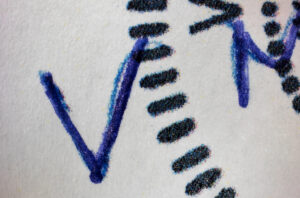
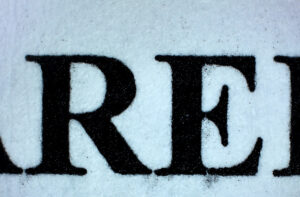
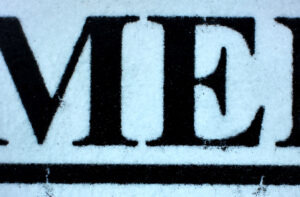
Why hire DocuDNA?
Fraud involving legal documents costs Americans billions of dollars every year in lost business, property, time, and litigation costs. Your important documents are one of the most vulnerable assets. For instance, nobody thinks that a family member would ever take your Will or Trust and change it, but it happens all the time.
Much of the fraudulent activity conducted on documents involves altered text and cut-and-paste signatures. It is important to hire a forensic document examiner who understands current technologies that are being used to alter documents. We know and understand these software programs and how to identify alterations. Conducting forensic handwriting analysis, document dating and forensic paper analysis along with a thorough understanding of various forgery techniques is what makes a paper expert necessary.
With a degree in Paper Science & Engineering and having spent over 30 years working and consulting in the paper industry, Doug has the expertise to understand how paper is made and what unique properties can be identified in altered documents. There is an untold story of evidence ready to be uncovered within the paper of altered documents. We are court-certified and qualified expert witnesses.
Testimonials



Get In touch
912-622-2777
dcobb@docudna.com


